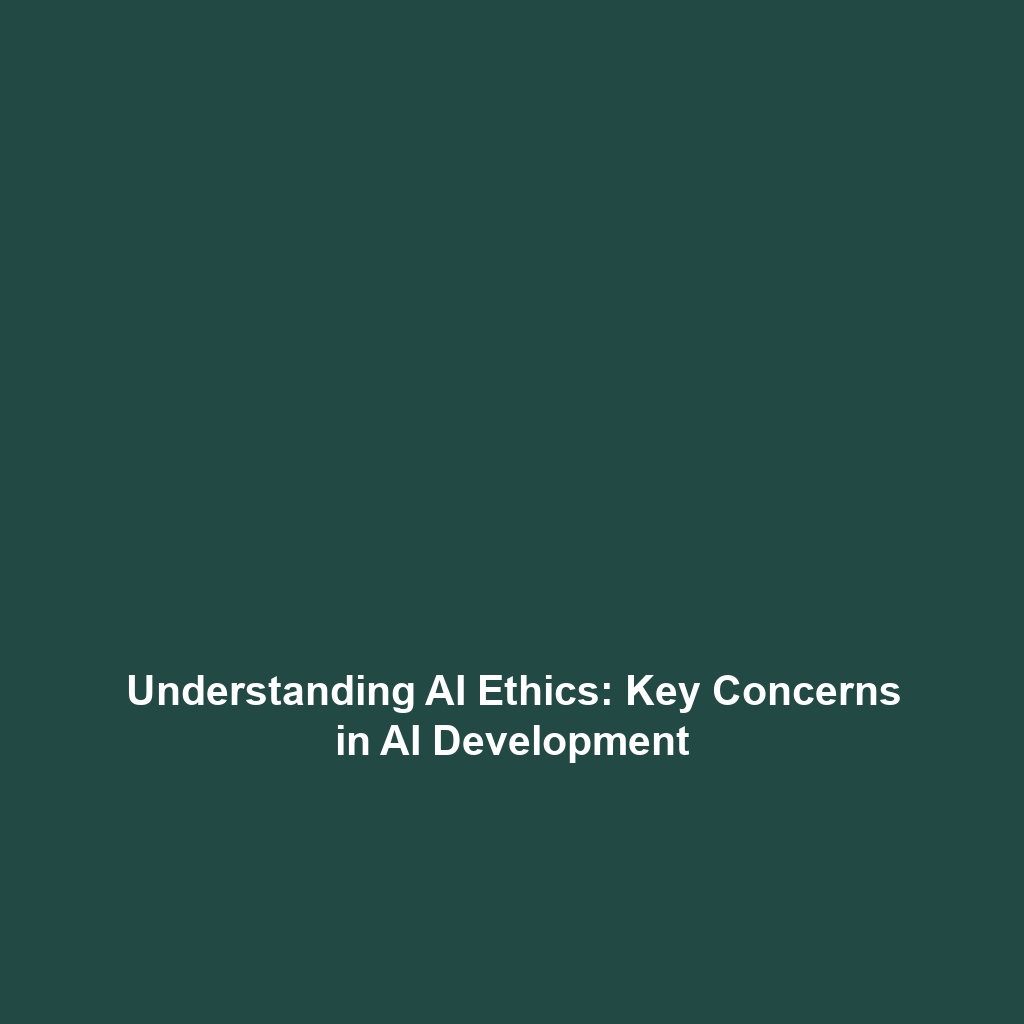What is AI Ethics?: Overview of Ethical Concerns Surrounding AI Development
Introduction
AI Ethics is a critical field of study that examines the moral implications of artificial intelligence (AI) technologies. As AI systems become increasingly integrated into various aspects of society, understanding AI Ethics becomes vital to address the ethical concerns surrounding their development and deployment. This article provides an overview of AI Ethics, highlighting its significance in ensuring that AI technologies are developed responsibly, protecting societal values, and promoting fairness and transparency in decision-making processes.
Key Concepts
Understanding AI Ethics involves several key concepts and principles:
- Fairness: Ensuring that AI systems do not perpetuate existing biases or discriminate against particular groups.
- Transparency: Making AI decision-making processes clear and understandable to users and stakeholders.
- Accountability: Establishing clear lines of responsibility for AI outcomes and their societal impacts.
- Privacy: Protecting users’ data and ensuring that AI systems adhere to data protection regulations.
These principles are essential to address the ethical concerns surrounding AI development and can guide researchers, developers, and policymakers in establishing responsible AI practices.
Applications and Real-World Uses
The applications of AI Ethics are far-reaching and can be observed in various sectors:
- Healthcare: AI systems are employed in diagnosing diseases; ethical considerations include patient consent and data privacy.
- Criminal Justice: Algorithms analyze criminal behavior, raising issues of bias and fairness in sentencing.
- Finance: AI is used in fraud detection; ethical concerns focus on transparency and accountability for decisions made.
These examples underline how AI Ethics is applied to ensure responsible use and address ethical concerns in AI development.
Current Challenges
Despite the advancements in understanding AI Ethics, there are significant challenges:
- Lack of Standardization: A unified framework for ethical guidelines in AI does not exist, leading to varied interpretations.
- Complexity of AI Systems: The intricate nature of AI technologies makes it difficult to assess ethical implications accurately.
- Rapid Technological Advancements: Keeping pace with innovations often outstrips the development of ethical guidelines.
These challenges highlight the ongoing issues in the field of AI Ethics that require ongoing attention and resolution.
Future Research and Innovations
Future research in AI Ethics is poised to address many pressing issues through innovative approaches:
- Ethical AI Frameworks: Developing comprehensive guidelines that will foster ethical practices across all AI fields.
- Explainable AI: Creating AI systems that provide interpretable results will enhance transparency and public trust.
- Bias Mitigation Techniques: Researching methods to identify and reduce bias in algorithms will further ethical AI development.
These innovations will play a crucial role in shaping the future of AI Ethics and ensuring that AI technologies benefit all of society.
Conclusion
AI Ethics is an essential field that addresses the various ethical concerns arising from AI development. By focusing on principles of fairness, transparency, accountability, and privacy, stakeholders can navigate the complexities of artificial intelligence responsibly. As we advance, ongoing research and collaboration will be vital to overcoming current challenges and paving the way for ethical AI innovations. For further exploration of related topics, consider reading about ethical frameworks or real-world applications of AI Ethics.

Leave a Reply